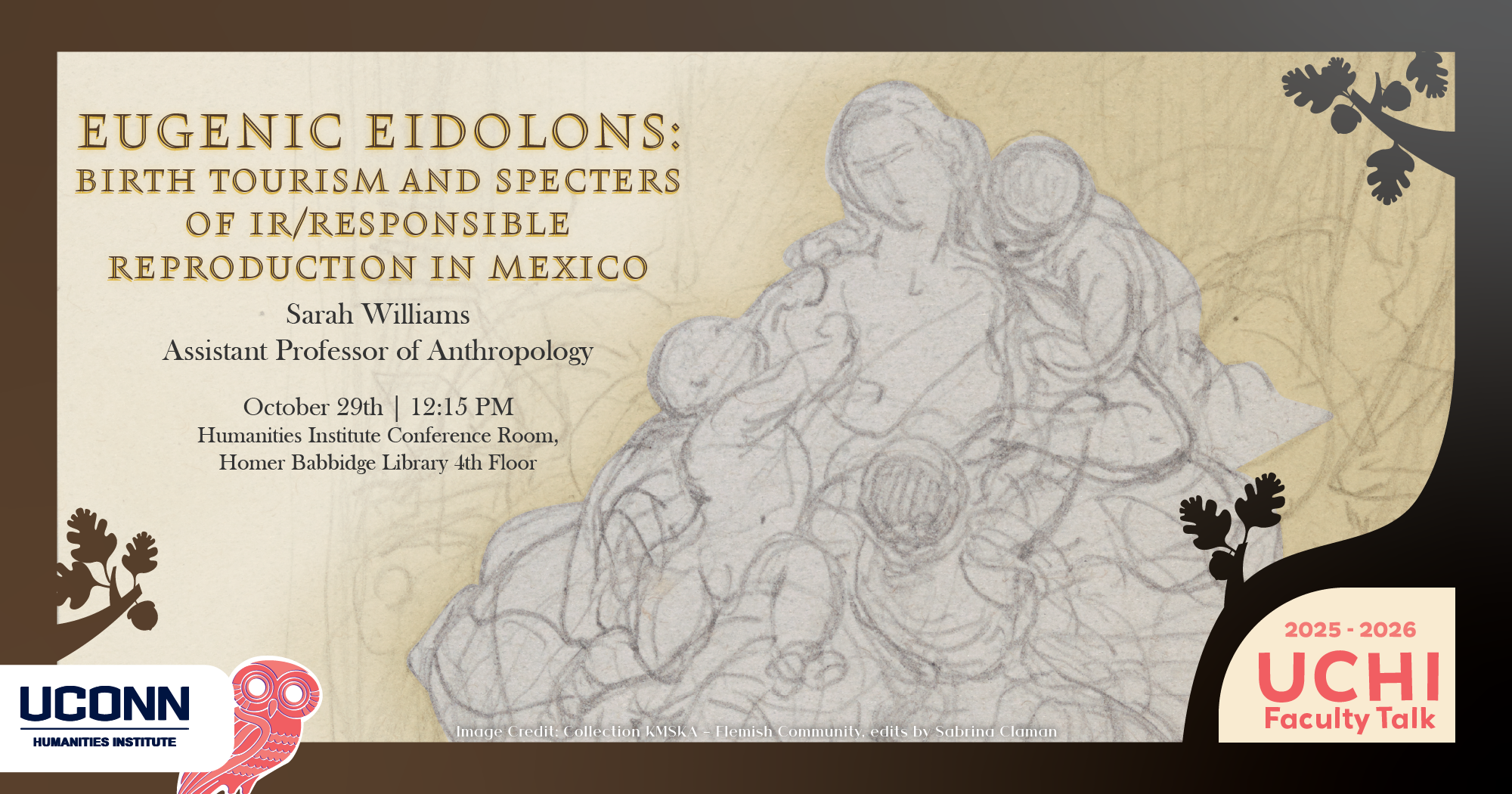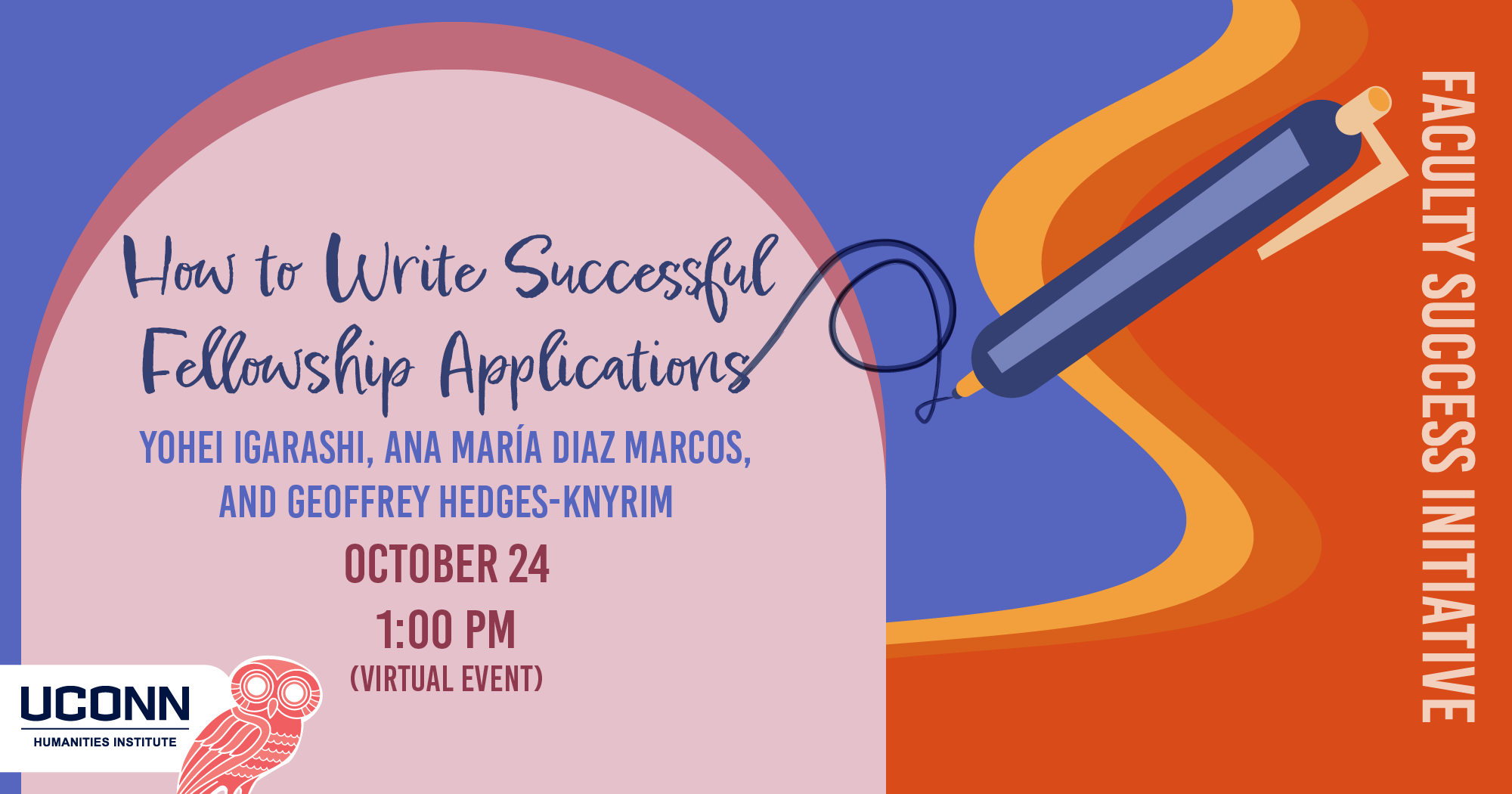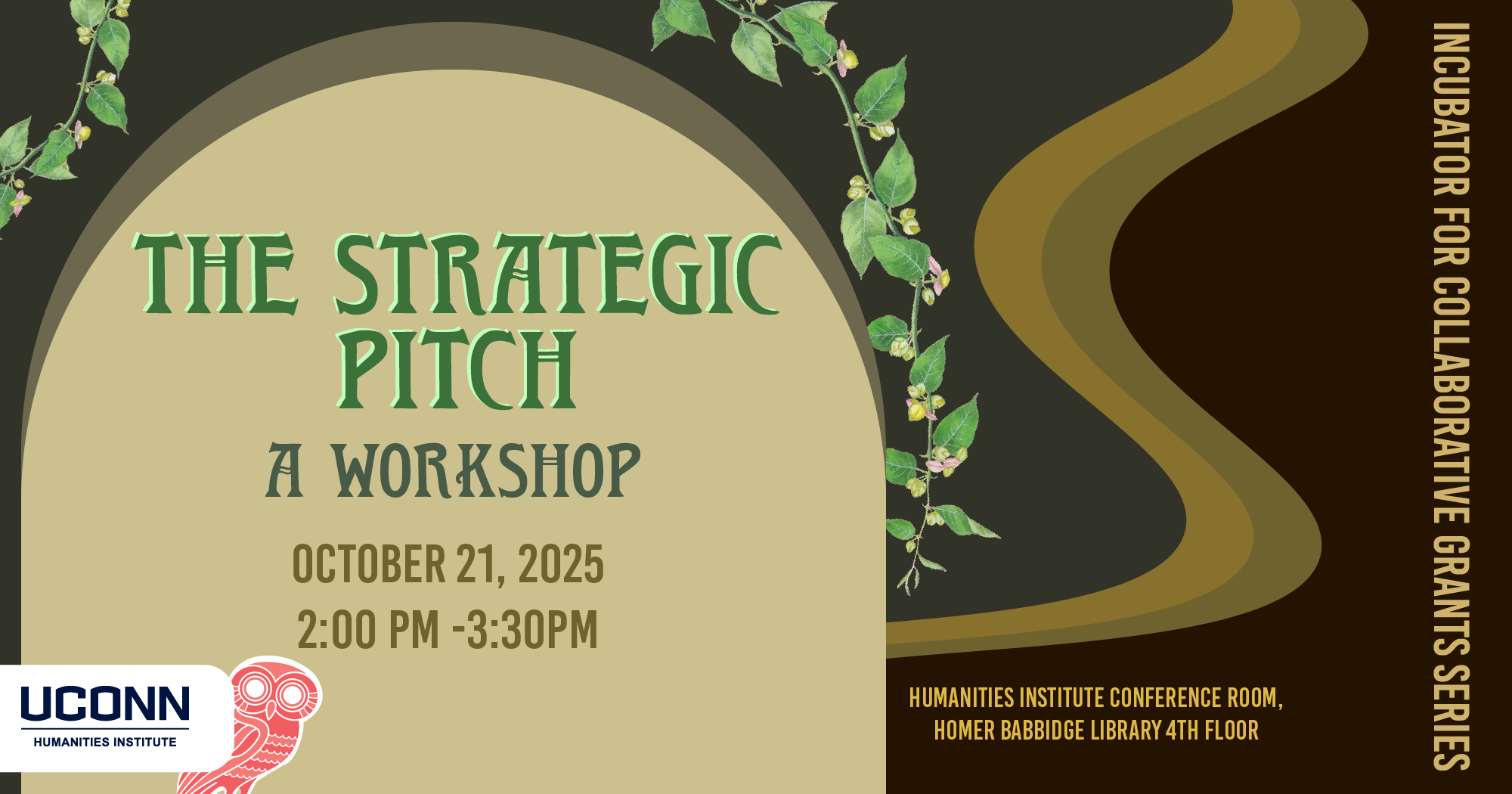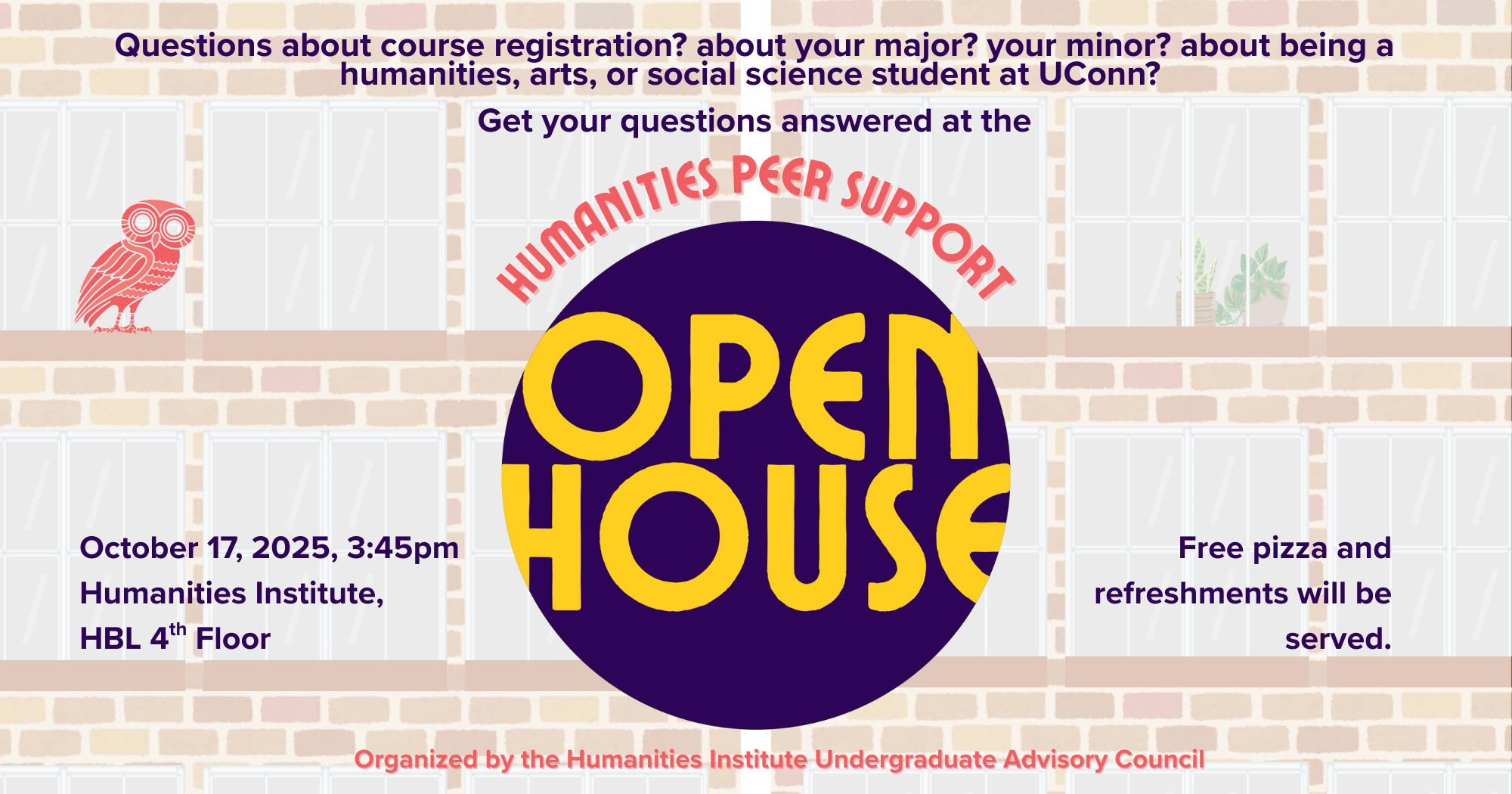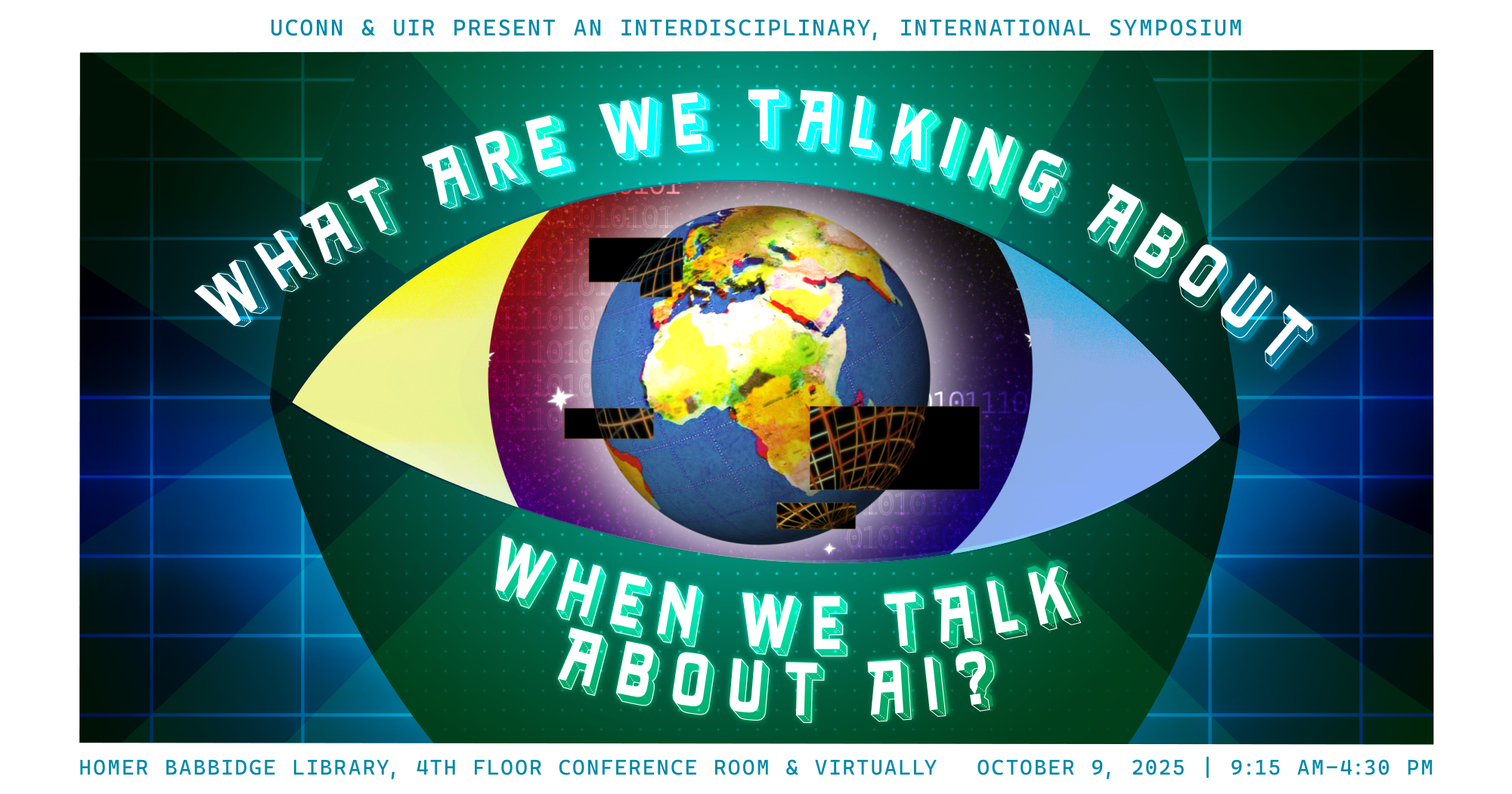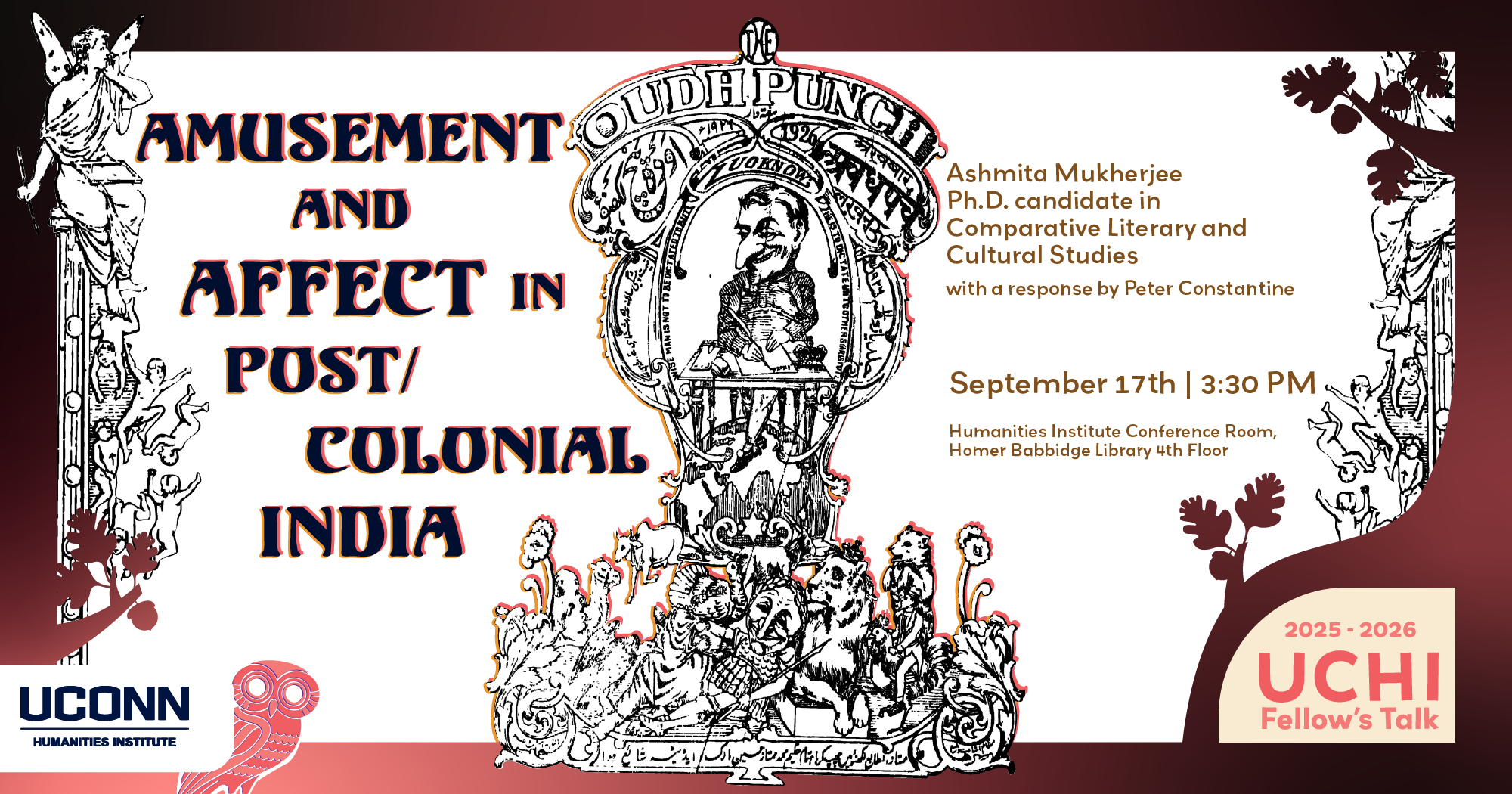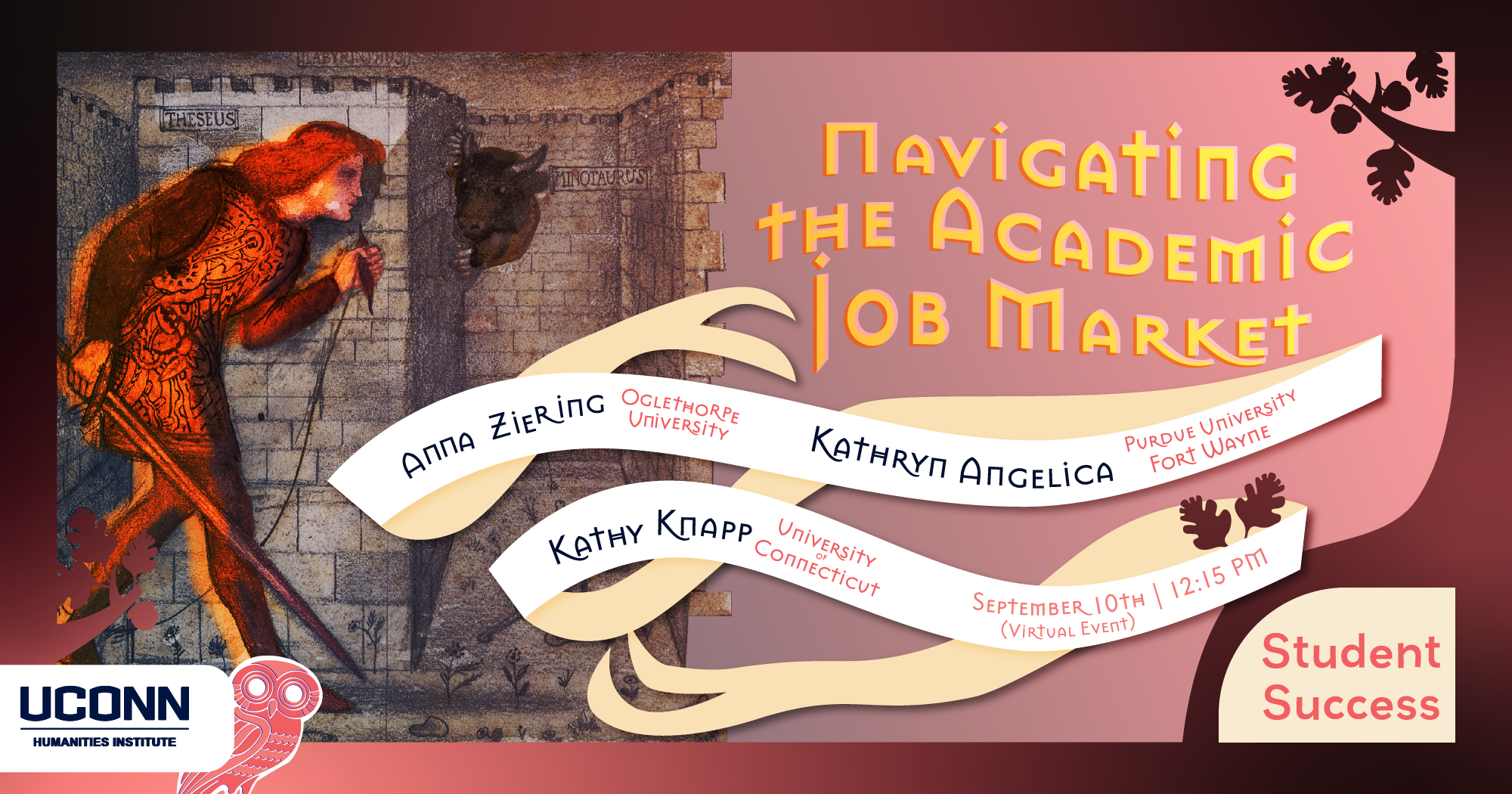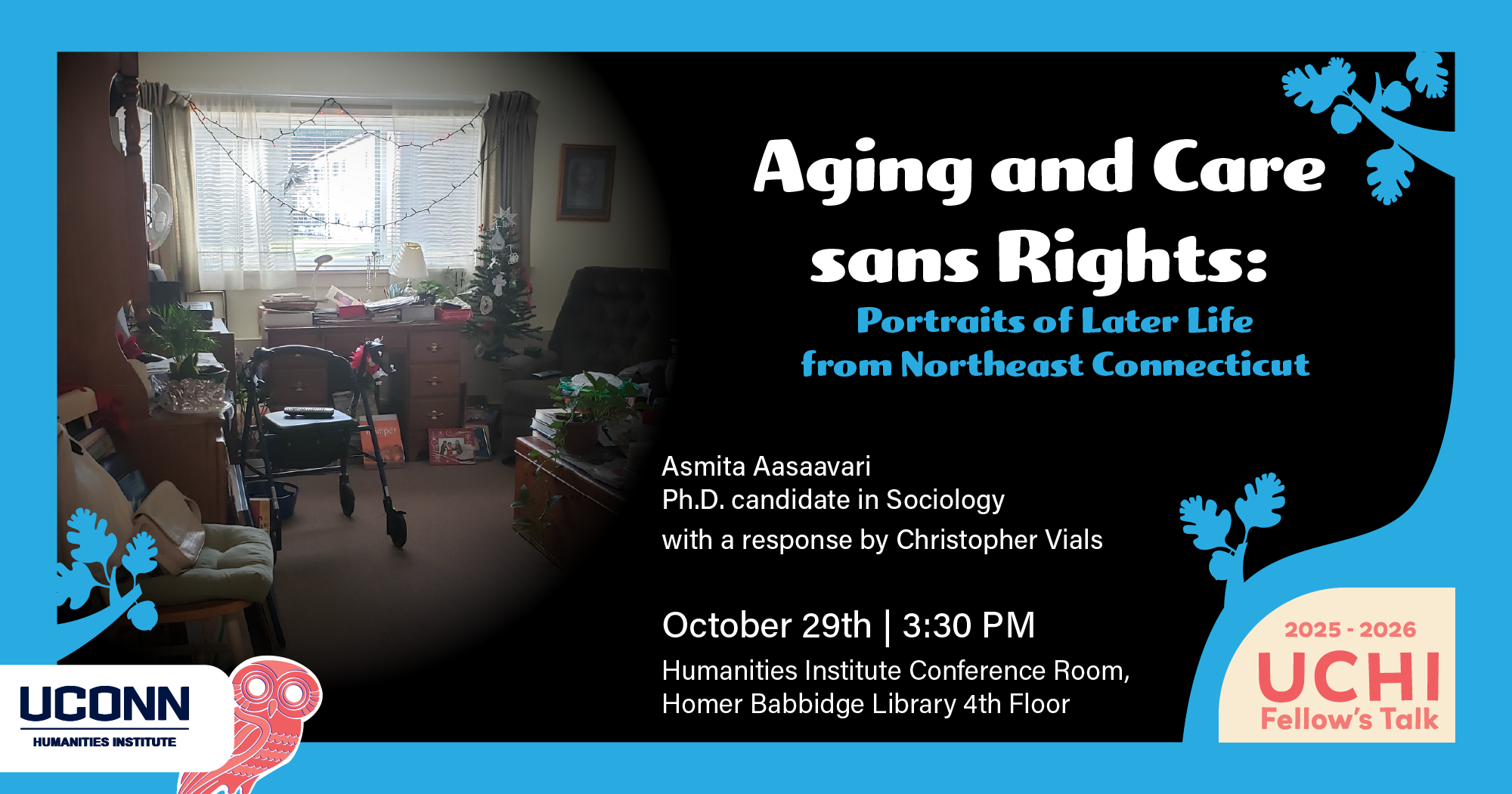
Aging and Care sans Rights: Portraits of Later Life from Northeast Connecticut
Asmita Aasaavari (Ph.D. Candidate, Sociology, UConn)
with a response by Christopher Vials (English & Social and Critical Inquiry, UConn)
Wednesday, October 29, 2025, 3:30pm, Humanities Institute Conference Room (HBL 4-209)
The event will also be livestreamed with automated captioning.
Compared to the last three decades, people today spend more of their lives caring for elderly parents or ill spouses than ever before, due to longer lifespans, advancements in medical technology, and an increasing number of disabled adults. Most academic and policy discussions of these trends focus on the challenges this creates for the “sandwich generation,” caregivers who balance employment with care for children and aging parents. Yet 34% of older adults also care for others, including spouses, grandchildren, and parents (AARP 2015). In this talk, I present narratives of aging and care from an ethnography set in Northeast Connecticut. Centering the role of race, class, and gender-based negotiations, I discuss how older adults approach later life, especially in situations where they are expected to care for others alongside their own aging needs. I also highlight the value of rights-informed perspectives in studying later life and discuss how class status, social supports, and life-course developments complicate our understanding of economic disadvantage.
Asmita Aasaavari is a Ph.D. candidate in the Department of Sociology at UConn. In her research, she uses interdisciplinary methods and sociological lenses to shed light on how aging and the social organization of care intersect with systems of inequality such as race, class, gender, and disability. Her research and teaching have been recognized and funded by the American Sociological Association, Social and Economic Rights Association, The Hastings Center, UConn Human Rights Institute, among others. Professionally, beyond academia, Asmita has worked with social science research institutions in India and the US in the fields of aging, gender, education, poverty alleviation, politics, and volunteered with rights-based social movements.
Chris Vials is a Professor in English and the School of Social and Critical Inquiry at the University of Connecticut. He is the author of Haunted by Hitler: Liberals, the Left, and the Fight against Fascism in the United States (2014) and Realism for the Masses: Aesthetics, Popular Front Pluralism, and US Culture, 1935-1947 (2009). He is also the editor, with Bill Mullen, of The US Antifascism Reader, published by Verso Press in 2020, and the sole editor of American Literature in Transition: 1940-1950 (Cambridge, 2017).
Access note
If you require accommodation to attend this event, please contact us at uchi@uconn.edu or by phone (860) 486-9057. We can request ASL interpretation, computer-assisted real time transcription, and other accommodations offered by the Center for Students with Disabilities. Requests should be made at least five business days in advance whenever possible
